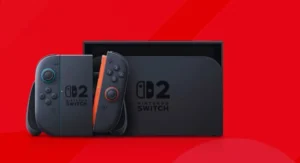What is a VPN Kill Switch, and Why Do You Need One?
By TOI Desk
September 8, 2023
Update on : September 8, 2023

You might have heard about the VPN kill switch and are wondering what it actually is. The term “kill switch” might sound ominous, but it plays a vital role in protecting the security and anonymity of VPN users. It protects users’ privacy by doing one simple thing: whenever the connection to the VPN server drops, it kills the internet connection.
A VPN helps you hide your identity and activities on the internet; if the VPN connection drops, you lose this protection and become vulnerable. A VPN kill switch ensures that your connection’s security and anonymity will never be compromised. Most Premium VPNs nowadays have the kill switch feature, usually active by default.
How does a VPN Kill switch work?
The operation principle of a VPN kill switch is very simple; here is how it works.
1. Monitoring
When you enable the kill switch, it starts monitoring your device’s connection to the VPN. It does so by monitoring your IP address and internet status and keeping an eye out for any changes.
2. Detecting
If any changes happen in the status or IP address, the kill switch detects it instantly.
3. Blocking
After detection, the kill switch will block the internet connection to a few specific apps or the entire device, depending on the type of kill switch or the specific settings.
4. Restoring
Whenever the connection to a VPN re-establishes, it unblocks your internet connection; you won’t have to do anything yourself.
When does a VPN kill switch kill the internet?
As mentioned before, a VPN kill switch kills the internet connection when you are not connected to the VPN. Most excellent VPNs, such as SurfShark, NordVPN, ExpressVPN, etc., provide a fairly stable connection, which rarely gives the kill switch a chance to do its job. The kill switch usually comes into play because of other reasons, such as:
- Your internet connection is too weak, so your VPN connection drops; the kill switch steps in and blocks the internet.
- Sometimes, there is a drop in the connection when you try to change VPN servers. The kill switch blocks the internet connection until you get a reliable connection with the new server.
- Your system reboots and doesn’t start the VPN; in such a situation, the kill switch will block the internet until you start the VPN.
- You restart your device and forget to start the VPN; in this case, the switch will block the internet until you start the VPN.
- Your firewall or antivirus might be blocking the VPN from running, which might force the VPN to block the internet. You can easily solve this issue by adding the VPN to the firewall’s exceptions list.
What are the types of Kill Switches?
There are two main types of kill switches: System-level Kill Switch and Application-level Kill Switch.
System level Kill Switch
As its name suggests, a system-level kill switch affects the entire system. Whenever the VPN connection drops, it blocks the internet to your device as a whole. This type of kill switch is more secure and is especially effective in preventing IP leaks.
This kind of kill switch comes with most major VPNs, and it is active by default. If it is inactive by default, you can easily switch it on by going through your VPN’s settings.
Application level Kill Switch
The application-level kill switch works on the application level. Whenever the connection to the VPN drops, it will disconnect the internet connection to a specific application. This kind of kill switch allows you to choose one or more applications you want to stop from accessing the internet when the VPN connection drops.
This can be useful if you want to keep your activity and IP address anonymous while using specific apps such as a browser, email app, video calling app, or Torrent client. Application level kill switch is more flexible than the system level kill switch, but it is more suitable for advanced users. You need to thoroughly understand the apps you are working with to determine which apps can leak your identity so you can include them in the kill list.
Why do you need to use an internet kill switch?
People use VPNs are used for a variety of reasons. If you are only using a VPN to change GEO-location to, for example, watch Netflix shows, then you probably won’t need an internet kill switch. But if you are doing something that you absolutely don’t want anyone to know, such as:
- You are a journalist or an activist in a country with an authoritarian government, and you don’t want to be tracked.
- You are a lawyer or a social worker dealing with confidential information you want to keep confidential.
- You are using peer-to-peer software or downloading something from torrent such as uTorrent, BitTorrent, etc., and want to remain anonymous.
In such situations, an internet kill switch can be your last line of defense.
What are the risks of not using an internet kill switch?
If you are a regular user who is using a VPN to access geo-blocked content, then there is no risk. However, if you are dealing with sensitive information or want to remain anonymous for some reason, there can be risks. Here are some risks of not using a VPN kill switch while online:
1. You become vulnerable
When your VPN connection drops, you instantly become visible to your ISP and government. They can track what you are doing online and can access your IP address. If you were doing something forbidden in your country at that time, then you could get into some serious trouble.
2. Free Wi-Fi
Free WIFI, such as public hotspots and connections at cafes and train stations, can be dangerous as they are usually unprotected and an easy target for hackers. Accessing such a network without a VPN kill switch can be dangerous because if your VPN drops, your data will be vulnerable and can become easy prey to hackers.
3. Your location
Without a kill switch, your IP address might be leaked to the ISP or the government if the VPN drops. They can then use this Public IP to track your location and find their way to your home. This can be a serious or even deadly problem if you are a journalist, activist, or blogger in an authoritarian regime.
4. Your online activities become traceable
When your VPN connection drops, your internet activity becomes visible for all to see. Big corporations can use your IP address to develop a profile and store your internet activity in their database. They will then use this data for their business, such as sending personalized ads and emails. This is usually not a big problem, but if you are particularly concerned about your privacy and anonymity, then you might want to watch out.
Read more: What is a VPN Kill Switch, and Why Do You Need One?















